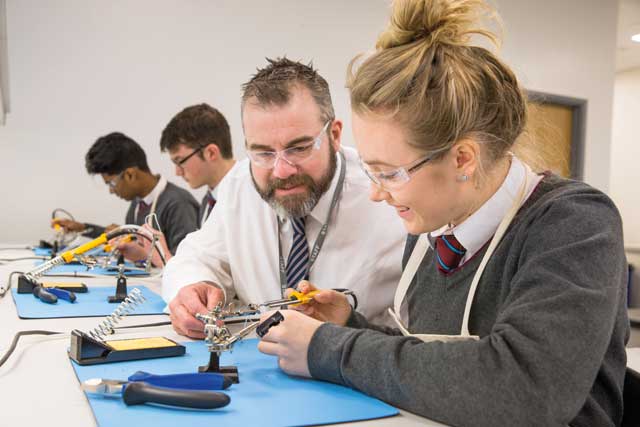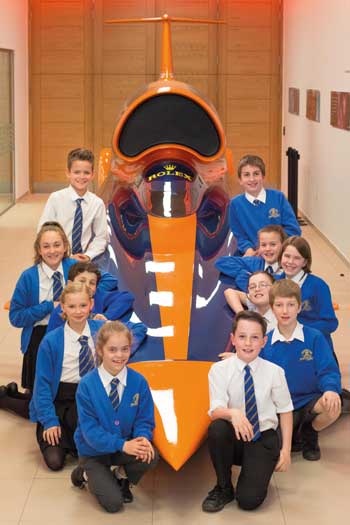
Renishaw’s Fabrication Development Centre is proving an invaluable resource for local schools, as part of the company’s programme to enthuse school students about engineering as a career, says head of communications Chris Pockett
This March, Renishaw officially launched its Fabrication Development Centre (FDC), located at the company’s Miskin plant near Cardiff. The FDC is, we believe, a unique educational resource, set in an industrial site and focused on hands-on learning to support the school curriculum, inspire young people and encourage a flow of talent into science, technology, engineering and maths (STEM) careers.
The centre is one part of an extensive programme of education outreach activities that Renishaw has been building in earnest for the past seven years. We had always been a good community-minded organisation, but our work with schools often relied on the goodwill of engineering staff, and invariably activities ended when their children moved on from a school. The activities were also disparate and lacked focus on generating a clear business benefit.
In 2011 Renishaw was growing strongly post-recession and recruiting a considerable number of new staff (employee numbers grew from 1,850 in 2009 to 4,500 in 2017), and with expanding apprenticeship and graduate programmes there was a clear need to nurture the flow of talent, especially in the face of ever-increasing competition for skilled engineers.
We believe that the key to increasing the number of people wanting to become engineers is to inspire them much earlier on in life, and therefore in 2011 we took the decision to recruit an education outreach officer to create a clear results-focused strategy for our schools programmes.

Initially we focused on secondary schools and pupils close to making GCSE choices, but with a large body of evidence from King’s College London demonstrating that a passion for science develops before the age of 14, we now also work with pupils during the later years of primary school and early years of secondary school. It is important, however, that our outreach activities aim to inspire not only children, but their main influencers, namely teachers and parents. We work hard to break the stereotypes that the sector has been burdened with, demonstrating that engineering is not dark, dirty or just for men, but instead offers a creative and rewarding career.
The FDC supports Renishaw’s education outreach strategy in South Wales by providing schools or groups of young people with a purpose-built centre that offers free lessons or workshops. Initial set-up costs were supported by the Welsh Government, and the centre contains two classrooms, staffed by a qualified teacher and Renishaw’s STEM ambassadors. It is provided with state-of-the-art equipment, including 3D printers. The centre has to date played host to everything from Brownies groups to A-level students, and even careers advisers finding out more about the skills requirements of modern engineering companies.
The FDC enables students to grasp the link between the school curriculum and industry. They can take part in motivating workshops that complement the exam specification and give them a better understanding of the career opportunities available to them in the future. They then take tours of the Miskin manufacturing plant where they can see modern manufacturing in action, including the industrial application of metal 3D printing technology, which reinforces what they have learned.
As well as ad hoc visits from primary and secondary schools, there is increasing interest from schools in timetabling regular lessons at the FDC. The first to do so was Radyr Comprehensive, which from September 2016 has sent pupils from its year 9 GCSE class and year 12 A-Level class as part of their product design lessons.
The students have been able to contextualise what they have learned from the school curriculum in a manufacturing environment, with specifically tailored projects created by staff at the FDC. The benefits to the students have been clear, with everyone who used the facility in that first year passing product design.
As Richard Jenkins, Radyr Comprehensive School assistant headteacher, said last autumn, “The buzz created by using the latest tech has definitely travelled around the school – we have just taken on our largest ever cohort of product design students.”

